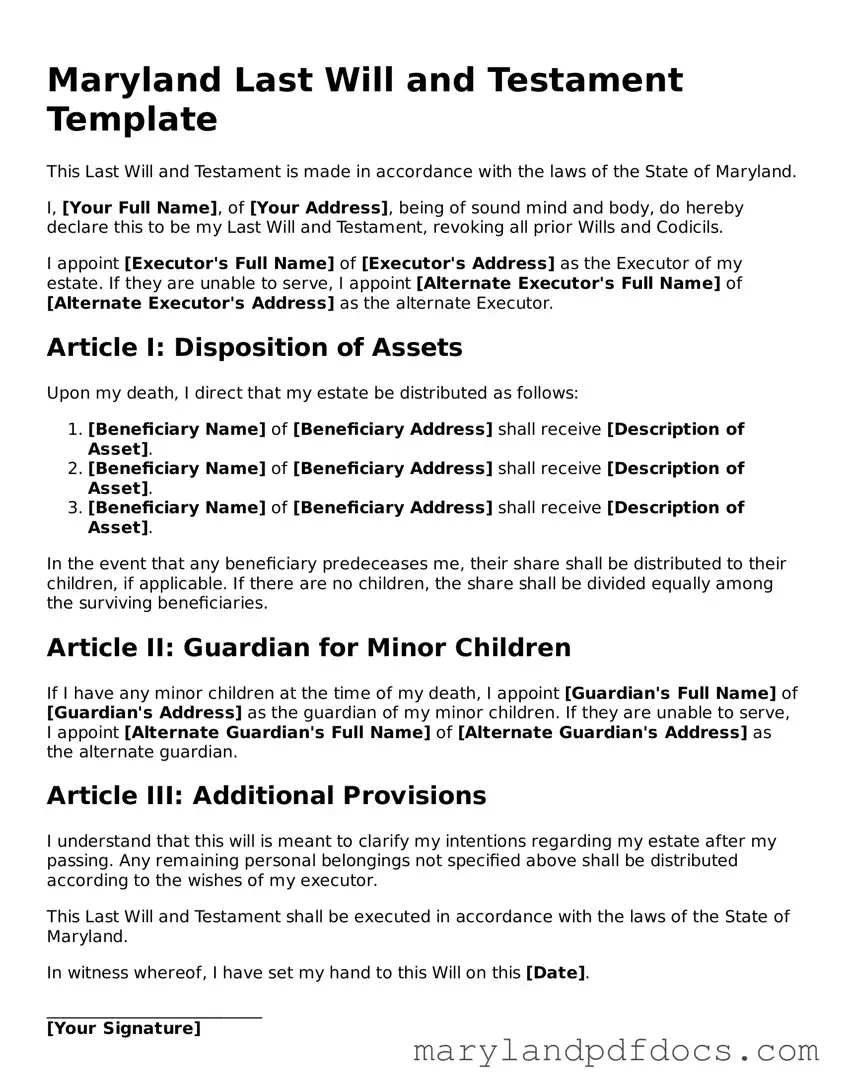Printable Maryland Last Will and Testament Template
The Maryland Last Will and Testament form is a legal document that outlines how an individual's assets will be distributed after their death. This form serves to ensure that your wishes are honored and can help prevent disputes among heirs. It is essential to complete this document accurately to secure peace of mind for you and your loved ones.
Ready to take the next step? Fill out the form by clicking the button below.
Launch Last Will and Testament Editor

Printable Maryland Last Will and Testament Template
Launch Last Will and Testament Editor

Launch Last Will and Testament Editor
or
Free Last Will and Testament PDF
You’ve already started — finish it
Fill out Last Will and Testament digitally in just minutes.